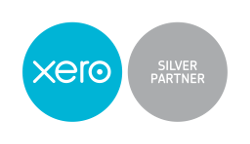HMRC’s rental income rules are quite clear when it comes to whether landlords need to pay taxes on rental income. However, the matter is unique for every individual and you will therefore need to explore your options depending on your particular circumstances. With this in mind, let’s explore the basics that go into a landlord tax return.
What are the tax brackets for rental income?
Much like businesses and employment, your profits from rentals will be taxed the same way. This means you will fall into one of the following categories: 0%, 20% (basic rate), 40% or 45%, depending on which tax band the income falls into. It’s also important to keep in mind that as of 2024, the basic rate is likely to be reduced to 19%.
Furthermore, you’re likely to fall into one of the following three categories:
- You don’t earn enough to pay any tax on your rental income;
- You pay tax on your rental income at a rate of 20%; or
- You pay tax on your rental income at a rate of 40% or above.
How do you calculate the tax on your rental income profits?
With the abovementioned in mind, you will now want to calculate the tax on profits from your rental income. Here’s what you need to do:
Firstly, begin by adding together all the rental income that you have received. Next, add together all the allowable expenses (for more on this, see the next section below). Afterwards, deduct the allowable expenses from the total rent as well as deduct any capital allowances. The sum total will be the taxable profit or allowable loss.
What constitutes “allowable expenses” for landlords?
As mentioned above, you can deduct allowable expenses from your rental income to calculate the final profit. So, what constitutes allowable expenses? Here is a brief and non-exhaustive list:
- Professional fees; accountant, legal costs, agent fees
- Mortgage and property loan interest
- Ground rent
- Utility bills: gas, electricity, water and others
- Council tax
- Property maintenance and repairs
- Landlord insurance
- Service charges (e.g. cleaning)
Do I need to do a self-assessment tax return?
Self-assessment for rental income will depend on your individual circumstances. For example, you will not be required to file a self-assessment tax return if your rental income is less than £1,000 and you don’t have another reason to file a tax return.
However, you will be required to file a self-assessment tax return if you are a buy-to-let landlord and you earn more than £1,000 from rent and if you rent out a room in your house and you earn more than £7,500 in rent.
Completing a tax return for rental income
You are required to notify HMRC of any rental income by 5 October after the end of the tax year (5 April). After this, and depending on your circumstances, you will need to fill in a self-assessment tax return if you earn money from renting out property.
The main tax return
According to sources, “if your total income from UK property is £10,000 or more for the tax year before expenses, you must complete the main tax return.” Furthermore, you will be required to fill in a tax return if your rental income falls above the £2,500 threshold after expenses are deducted.
Supplementary pages
If your rental income is derived from UK property, you are required to complete the UK property pages. If your property is abroad, you should complete the foreign pages. However, if you are running a trade that includes a hotel, guesthouse or a B&B, you will be viewed as being self-employed. As a result, you will need to fill in the self-employment pages.
To wrap up
When it comes to filing tax returns and self-assessments for rental income received by landlords, it’s evident that the situation can appear complex. However, with the right tax accountants in London behind you, you will be in good hands to ensure you make the most of your profits and always be certain that your self-assessment is filed correctly and on time. So, don’t hesitate to get in touch with us at Tax Navigator. We’re just a call away and ready to be of assistance to you!



0 Comments